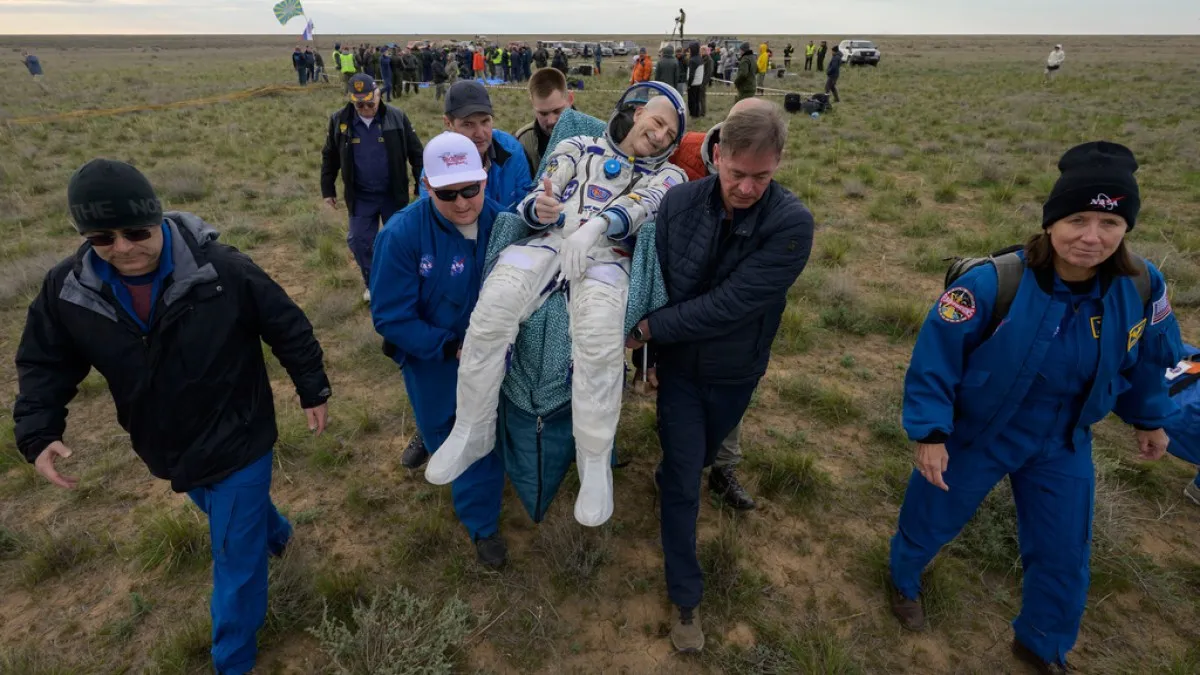
On Sunday, Russian astronauts Alexey Ovchinin and Ivan Wagner, along with American astronaut Donald Pettit, successfully returned to Earth following a remarkable seven-month science mission aboard the International Space Station (ISS). The trio made their descent in the Russian Soyuz MS-26 spacecraft, which landed southeast of the town of Dzhezkazgan, Kazakhstan, at 6:20 AM local time (01:20 GMT).
The landing of the Soyuz MS-26 was officially confirmed by both NASA and the Russian space agency Roscosmos. Interestingly, the timing of this parachute-assisted return coincided with the 70th birthday of astronaut Donald Pettit, as noted by NASA on the social media platform X. This happy coincidence highlights the significance of their successful mission not only for space exploration but also for Pettit's personal milestone.
Immediately following their landing, the crew was transported to a recovery staging area in the city of Karaganda. Reports indicated that astronaut Pettit was in good health after the lengthy mission, which showcased the rigorous training and resilience of astronauts on long-duration flights.
The crew arrived on the ISS on September 11, 2024, and spent an impressive total of 220 days in space. During this time, they orbited the Earth approximately 3,520 times, completing an incredible journey of about 93.3 million miles (150.15 million kilometers). Pettit focused his research on in-orbit metal 3D printing capabilities and water sanitisation technologies, as well as studying plant growth and fire behavior in the unique environment of space.
This mission marked Donald Pettit's fourth spaceflight, bringing his total time in orbit to 590 days. In comparison, Alexey Ovchinin has accumulated 595 days across four flights, while Ivan Wagner has reached 416 days over two missions. Their combined experience contributes significantly to the ongoing research and understanding of long-term space travel.
Despite the geopolitical tensions following the onset of the war in Ukraine in February 2022, space exploration remains one of the few avenues of cooperation between the United States and Russia. Earlier this month, the Soyuz MS-27 spacecraft transported another joint US-Russia crew, including NASA’s Jonathan Kim and Russian astronauts Sergei Ryzhikov and Alexei Zubritsky, to the ISS for continued scientific experimentation.
It is important to note that while collaboration in space continues, the US and other Western nations have suspended various partnerships with Roscosmos as part of extensive sanctions imposed on Russia due to the ongoing conflict.
Astronauts, who undergo rigorous training and certification by NASA and organizations like the European Space Agency, are referred to as cosmonauts when representing Roscosmos. This distinction underscores the unique roles that these professionals play in advancing human knowledge and capabilities in space.